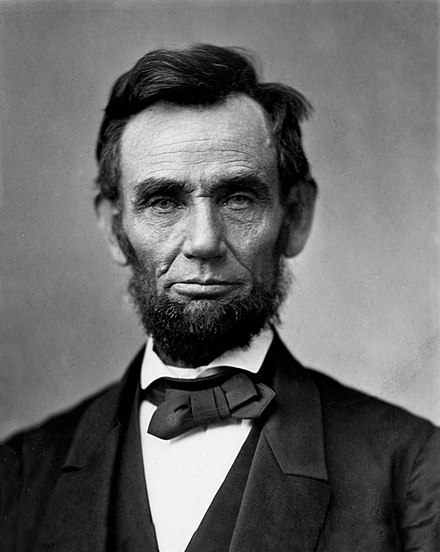War Quotes
-
Neoconservatives and the Pentagon have good reason to fear the return of the Vietnam Syndrome. The label intentionally suggests a disease, a weakening of the martial will, but the syndrome was actually a healthy American reaction to false White House promises of victory, the propping up of corrupt regimes, crony contracting and cover-ups of civilian casualties during the Vietnam War that are echoed today in the news from Baghdad.

-
Terms like 'liberty' and 'individual freedom' invoked by generations of Americans who battled to widen the 1787 promise to 'promote the general welfare' have been perverted to create a government primarily dedicated to the state and the political class that runs it. Yes, Virginia, there is a class war and ordinary people are losing it.

-
We hoped for a happy termination of this terrible war long before this; but God knows best, and has ruled otherwise. We shall yet acknowledge His wisdom and our own error therein.

-
Daughter of Eve from the far land of Spare Oom where eternal summer reigns around the bright city of War Drobe, how would it be if you came and had tea with me?

-
How senseless is everything that can ever be written, done, or thought, when such things are possible. It must be all lies and of no account when the culture of a thousand years could not prevent this stream of blood being poured out, these torture-chambers in their hundreds of thousands. A hospital alone shows what war is.

-
This is a war universe. War all the time. That is its nature. There may be other universes based on all sorts of other principles, but ours seems to be based on war and games. All games are basically hostile. Winners and losers. We see them all around us: the winners and the losers. The losers can oftentimes become winners, and the winners can very easily become losers.

-
If our countries had war the one with the other, that was no cause that he should put us to death; with which they were out of heart that their cruel pretense failed them. For which God be forever-more praised.

-
Could you imagine if the U.N. had endorsed the war in Iraq, what our reputation would be like?

-
The folly and hubris of the policy makers who heedlessly thrust the nation into an ill-defined and open-ended 'global war on terror' without the foggiest notion of what victory would look like, how it would be won, and what it might cost approached standards hitherto achieved only by slightly mad German warlords.

-
Sometimes brothers are in war with each other, but at the end love conquers all.

-
A nuclear war does not defend a country and it does not defend a system. I've put it the same way many times; not even the most accomplished ideologue will be able to tell the difference between the ashes of capitalism and the ashes of communism.

-
Perhaps wars weren't won anymore. Maybe they went on forever. Maybe it was another Hundred Years' War.

-
I’ve stopped war reporting. I realized that I’d answered all of my questions about war and about myself.

-
Young people: I understand this is important to you, but as you be thinking about climate change, the economy and jobs, war and peace, maybe way at the bottom you should be thinking about marijuana.

-
I think everybody should have an interest in peace prevailing and the ridiculousness, the bestiality of war. I don't have any time for that. Anybody pulling a trigger is wrong. There is no right in war.

-
But how can you understand a war without any knowledge of the society where it happens? It's like trying to understand birth without knowing anything about pregnancy or conception. Or like trying to understand our current economic collapse without knowing what a derivative is.

-
The other is stagnation. I do not need to spell out what that alternative will mean in detail: You have experienced most of it during the years that followed immediately after the war.

-
An all-out trade war with China would be damaging to Disney's business and to business in general. It's something I think we have to be very careful about.

-
I come from a very left wing Socialist family, anti-war and anti-empire.

-
During the war, in hundreds of Iliums over America, managers and engineers learned to get along without their men and women, who went to fight. It was the miracle that won the war - production with almost no manpower. In the patois of the north side of the river, it was the know-how that won the war. Democracy owed its life to know-how.

-
The insight that peace is the end of war, and that therefore a war is the preparation for peace, is at least as old as Aristotle, and the pretense that the aim of an armament race is to guard the peace is even older, namely as old as the discovery of propaganda lies.

-
The European powers had been anxious to see the United States become embroiled in a civil war and eventually break into two smaller and weaker nations. That would pave the way for their further colonization of Latin American without fear of the Americans being able to enforce the Monroe Doctrine.

-
When Lincoln ran into trouble during the Civil War, he got new generals. He brought in Grant. I hope that President Obama will bring in some new generals on the financial front.

-
We know that to wage a nuclear war today, for example, would be a form of suicide; or that to pollute the air or the oceans in order to achieve some short-term benefit would be to destroy the very basis for our survival.

























